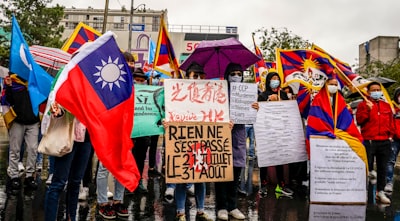Southeast Asia’s political theater is rarely dull, but the latest salvo from Cambodia’s former leader Hun Sen—threatening to expose Thailand’s former Prime Minister Thaksin Shinawatra for 'betrayal'—is especially compelling. This isn’t just personal drama; it throws a spotlight on the opaque, often transactional relationships that underpin the region’s politics, potentially destabilizing established norms and agreements.
Hun Sen and Thaksin: Friends, Rivals, or Co-Conspirators?
Hun Sen and Thaksin share a complex past. For years, they projected a public camaraderie, with Thaksin finding safe haven in Cambodia during his exile and Hun Sen using this relationship as leverage in regional affairs. But alliances in Southeast Asian power circles often hide deeper layers of mistrust and realpolitik. Hun Sen’s threat signals that personal loyalty only goes so far when political survival is at stake.
What’s at Stake? Key Controversies and Implications
| Issue | Perspective 1: Hun Sen | Perspective 2: Thaksin & Allies |
|---|---|---|
| Notion of Betrayal | Personal trust and national interest | Pragmatism and shifting alliances |
| Regional Stability | Rattling the political status quo | Potential for diplomatic fallout |
| Political Leverage | Weaponizing secrets for influence | Risk of public backlash |
Hun Sen’s warning could be interpreted as an attempt to head off moves by Thaksin to reassert influence, either in Thailand or Cambodia. By publicly accusing Thaksin, Hun Sen stakes a claim to transparency—or at least the threat of it—potentially deterring both domestic critics and foreign rivals.
Broader Relevance: Old Networks in a New World
This dispute mirrors a larger pattern: in Southeast Asia, informal relationships and personal networks often supplant formal institutions. With rising public demands for transparency and legal accountability, such backroom dealings can quickly become liabilities. Thaksin’s apparent attempts to re-enter politics, amid an evolving Thai political landscape, only heighten the drama. If Hun Sen does reveal explosive secrets, it could force regional leaders to rethink how much of their realpolitik calculus remains truly confidential in the digital age.
Why This Moment Matters
As regional power balances shift—with younger, more reform-minded generations pressing for change—exposés like this could disrupt not only political careers but cross-border relations as well. The move also underscores how, in an interconnected era, the personal is profoundly political, and vice versa.
This article was inspired by the headline: 'Cambodia’s former leader Hun Sen warns he will expose Thai ex-PM Thaksin for betraying him'.

Comments
No comments yet. Be the first to comment!